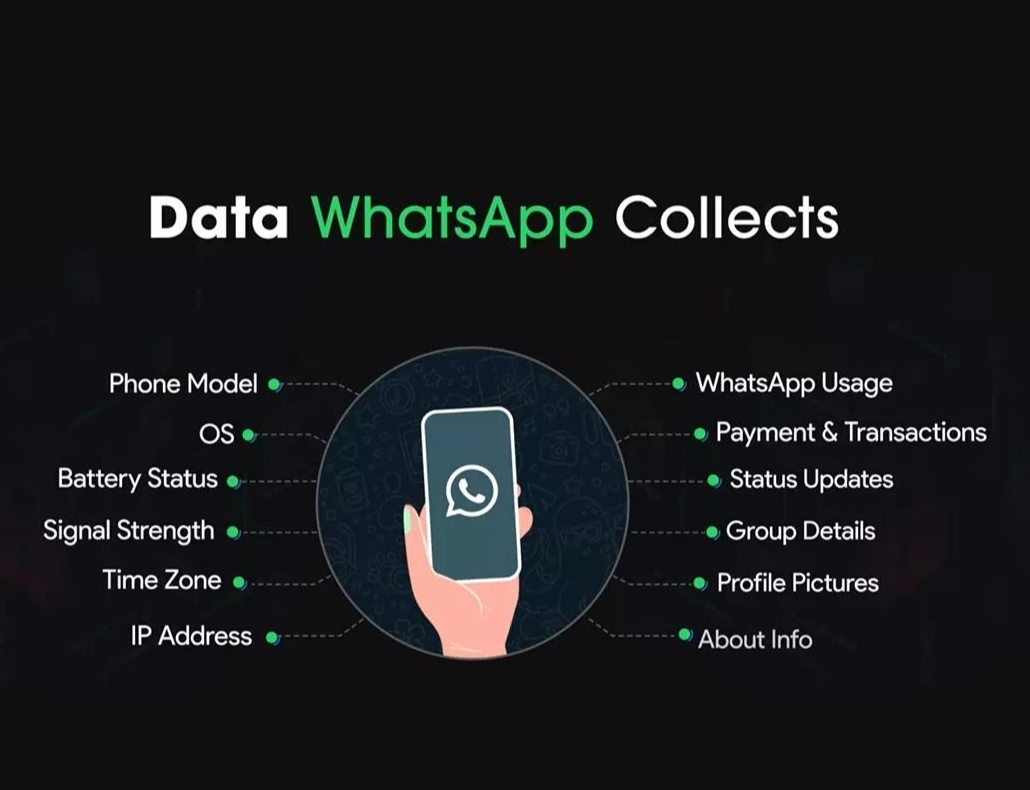WhatsApp has announced changes to its Privacy Policy which will take effect from 8th February. The question now arises that with the update in the privacy policy, why is everyone suddenly getting hyped about the upcoming changes?
So there are 3 categories of WhatsApp users right now. One who actually bothered to go through the privacy policy, second are those who just clicked on “Agree” and third are still waiting to make a decision regarding what to do.
Unless you have been living under a rock, you would be aware of the new changes that are coming forth which include data-sharing between Facebook and WhatsApp. Previously during a Congress Briefing, Facebook CEO testified that WhatsApp systems don’t talk to Facebook but now after 8th Feb, this is exactly what is going to happen. Here is the full exchange:
Aside from the dumb questions that the senators asked and much to Zuckerberg’s amusement, it can clearly be seen that he is going away from his approach in 2018. He had hinted before that there is a possibility of deep integration of Facebook, WhatsApp and Instagram, and that is exactly what is happening right now.
Here is a picture which is going viral regarding data which WhatsApp collects:
Now before we get to the nitty-gritty of what’s right and wrong with this policy, it is important to analyze what data is being collected by the platforms we use almost daily. The infographic below created by Security Baron highlights data that is collected by the biggest names in tech:
With that hindsight, if we were to leave WhatsApp with what the new privacy policy is proposing, we will have to leave a lot of other platforms too for the exact same reason. I am a great proponent of privacy but to suddenly create an issue regarding a privacy policy change while you are giving the same data to other services already, seems really absurd to me.
If you were to roam around the web securely and privately, there are a lot of things you will need to do. Let’s analyze the changes:
Operating System: Linux Mint or Kali Linux
You will have to completely ditch Windows and opt for Linux based Operating systems. Personally, I prefer Linux Mint but if you want to embrace Information Security side, you can also go for Kali Linux. You will have to completely ditch Windows and adopt Linux as your primary operating system.
You can download Linux Mint from here or Kali Linux from here. For mobile OS, you can opt for PureOS.
Search Engine: Startpage or DuckDuckGo
Google, Bing, Baidu and Yahoo are completely off the list if you are focused on pure privacy. Startpage and DuckDuckGo are 2 extremely popular alternatives for search engines if you are intent on not giving away even a single piece of data. Startpage provides various options through which you can mask your search activity and browse websites anonymously.
Check out Startpage and DuckDuckGo here.
Web Browser: Brave
Brave is based on the Chromium core and blocks ads, trackers and cookies during your browsing so that your session is secure. As per their own slogan, “the entire system is rife with ad fraud.” and if you believe their mission, then you need to opt for Brave instantly.
Opera is also a good alternative that you can opt for. You can download Brave from here and Opera from here. Switch from Chrome, Edge and Mozilla immediately.
Messenger and Voice Calling: Signal, Telegram and Threma
Now here are the alternatives that you probably might be looking for. Almost everyone is talking about Signal whereas Telegram is also extremely well known. If you are looking to spend around Rs. 500 for your privacy then Threma is also a great alternative to WhatsApp and other platforms that you might be using.
You can download Signal, Telegram and Threma from their respective home pages.
Social Network: Ello
Ello was initially built for creators but it has the capacity to accommodate all sorts of users. With a clean UI and ad-free experience, Ello is capable of replacing Instagram and be your everyday go-to network to relax and unwind. You can check out Ello here.
VPN: Tor Project
This is a favourite of cybersecurity professionals and if you want to browse anonymously, this is something that you must have. They have a simple mission of free access to the internet for everyone without anyone tracking you plus they want to circumvent censorship. You can check out Tor Project here.
Password Manager: Bitwarden
Of course, you can’t remember passwords on all of your devices. Rather than putting 123456 everywhere, use Bitwarden to help generate secure passwords for your apps and keep track of them across your devices. It’s free to use for 2 users and provides encrypted file storage. You can download Bitwarden here.
Email: ProtonMail
No Gmail, no Outlook, no Yahoo Mail. You will have to skip all of these services and go to ProtonMail if you want a secure email client on the web. It is one of the world’s largest secure email service available for free to users and it has been developed by CERN and MIT scientists. Check it out here.
Cloud: Sync.com
Ditch Google Drive, OneDrive and any other popular alternatives you might have. Go for Sync.com if you really want to use a Cloud Storage provider for your data. They offer end-to-end encryption and compliance with PIPEDA and GDPR. You can download it from here.
Ready to shift?
With all of the above services listed, my question to you now is that will you be willing to shift to these platforms permanently? If not, why are you still willing to compromise your privacy?
The new privacy policy update of WhatsApp is in line with Facebook’s policy of deeper integration of services. Half of us didn’t read the privacy policies of these platforms when we signed up for them and now that they are actually informing us of changes that they made in it, we are suddenly becoming champions of privacy. The platforms listed above will sacrifice ease of use to provide you with additional security so the question is are you willing to sacrifice that?
Are you willing to undergo a paradigm shift if you are so privacy-centric?
If not, then stay on WhatsApp and accept the new terms.
If yes, adopt the above-listed platforms and stay away from the other services provided by the likes of Facebook, Google, Microsoft and others.













